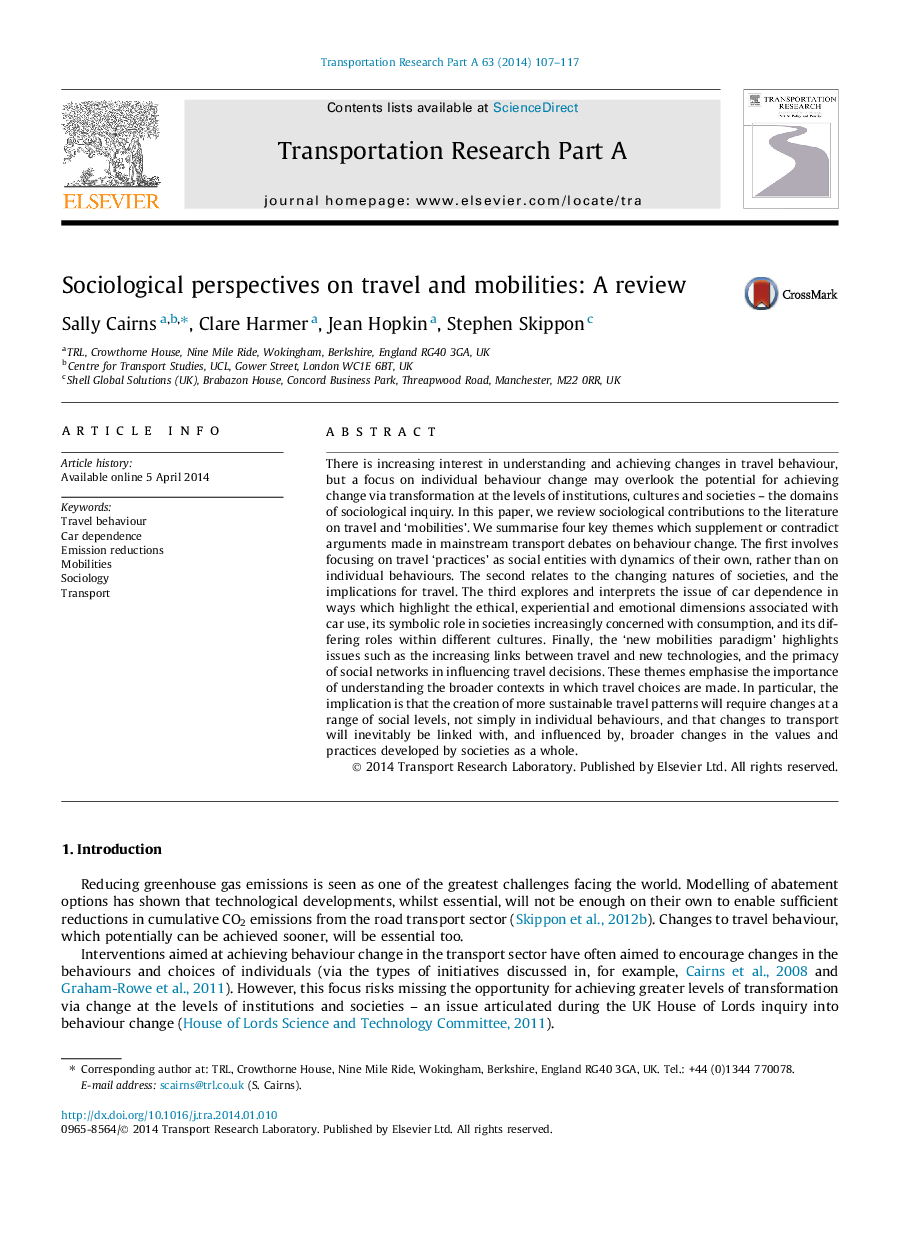| Article ID | Journal | Published Year | Pages | File Type |
|---|---|---|---|---|
| 312037 | Transportation Research Part A: Policy and Practice | 2014 | 11 Pages |
•Achieving changes in travel patterns must not just focus on individual choices.•Travel can be analysed in terms of social practices rather than behaviours.•Social emphasis on the self-creation of identity will also affect transport choices.•Promoters of non-car modes need to confront the full complexity of car dependence.•Transport and communication technologies are increasingly inextricably linked.
There is increasing interest in understanding and achieving changes in travel behaviour, but a focus on individual behaviour change may overlook the potential for achieving change via transformation at the levels of institutions, cultures and societies – the domains of sociological inquiry. In this paper, we review sociological contributions to the literature on travel and ‘mobilities’. We summarise four key themes which supplement or contradict arguments made in mainstream transport debates on behaviour change. The first involves focusing on travel ‘practices’ as social entities with dynamics of their own, rather than on individual behaviours. The second relates to the changing natures of societies, and the implications for travel. The third explores and interprets the issue of car dependence in ways which highlight the ethical, experiential and emotional dimensions associated with car use, its symbolic role in societies increasingly concerned with consumption, and its differing roles within different cultures. Finally, the ‘new mobilities paradigm’ highlights issues such as the increasing links between travel and new technologies, and the primacy of social networks in influencing travel decisions. These themes emphasise the importance of understanding the broader contexts in which travel choices are made. In particular, the implication is that the creation of more sustainable travel patterns will require changes at a range of social levels, not simply in individual behaviours, and that changes to transport will inevitably be linked with, and influenced by, broader changes in the values and practices developed by societies as a whole.
